KyCPA member spotlights
Issue 1
February 5, 2021
In this issue, we are spotlighting members and their advice provided in CPA Dish in 2020. In the student e-newsletter, CPA Dish provides bits of great advice for future CPAs. This is helpful for accounting students, those studying for the CPA Exam and new CPAs.
Thank you to the KyCPA members who provided your time and experience to help the future of the CPA profession. If you are interested in providing a CPA Dish in the student e-newsletter email ssoutar@kycpa.org.
Erin Beavin, CPA, senior manager of assurance services, Ernst & Young LLP, Louisville
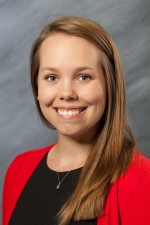
What kinds of experiences, paid employment or otherwise, would you most strongly recommend? What about internships or volunteer work?
I think experiences from paid employment and volunteer work are equally important. I find that in volunteer work, certain skills are exercised that may not be (as frequently) utilized in a day-to-day job. Teaching a classroom of 3rd graders or high school students through Junior Achievement, for example, help develop public speaking and presentation skills. Organizing an office-wide service project also helps develop budgeting and project management skills that can be utilized in a professional setting. Take on a variety of experiences so that you can learn what you’re good at, what you’re passionate about, and what skills may need a bit of practice so that you can be more impactful as an employee and volunteer in the community.
What is one piece of practical advice you would give to someone starting out?
I always advise new hires to be a team player. This means saying “yes” to tasks that may seem difficult, asking to help another team member who appears overwhelmed, and having a good attitude. Someone who is eager and willing to learn is always a valuable asset on any team.
What were the most important things you learned from your mentors?
From the mentors I’ve had over my career, one of the most important things I’ve learned is to invest in younger team members. That investment includes taking the time to teach complex or difficult subjects so that he/she can develop their own skillset. This also includes taking the time to get to know your team members; learn what their professional goals, learn what’s important to him/her outside of work, and figure out how you can help them achieve those goals and work-life balance. By doing so, the team functions at a higher level and people are happier – a win for everyone.
What are your success habits?
Figuring out how to utilize a flexible work environment and not feel guilty about keeping the same schedule as my peers has been instrumental in my success as a young professional thus far. I’m more of an early bird versus a night owl. Earlier in my career, I thought I had to work at the exact same time as my team to show I was dedicated and serious about my work. Over the years, however, I’ve realized that being task-focused versus hour focused has helped me be successful at work and at home; I work towards internal deadlines set by our team at a project’s beginning and keep lines of communication open. During our busy times, I’ve come to appreciate that most supervisors don’t care if you are most productive during 5-8 a.m. versus 7-10 p.m. as long as we are meeting expectations and delivering quality work to our clients.
What tips do you have for preparing for the CPA exam?
Anyone who has sat for any portion of the CPA exam knows that thing is no joke. The questions aren’t easy and the tests are lengthy. I wasn’t blessed with a photographic memory so I had to study in order to get the exam behind me. You have to figure out what motivates you to study. While the overall reward of becoming a CPA, in the end, was motivation, it wasn’t always enough to make me sit down and listen to Peter Olinto review financial reporting. I typically rewarded myself by getting coffee (that didn’t come from a Keurig) before sitting down to knock out a review area. I also tried to schedule my studying at the beginning of each week so that I didn’t cram right before a test. The exam is tough, but knock it out as quickly as you can so that you can move on to picking up a new hobby versus a CPA review course.
Garrett Booth, CPA, senior tax supervisor, Alexander & Company CPAs PSC, Owensboro
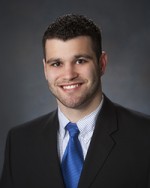
What do you wish someone had told/taught you on your first day on the job?
I wish someone would have told me to hold on tight and enjoy the ride that first year. You will learn so much about your profession as well as business in general. At a certain point, you really start to feel empowered because you realize that the knowledge base you are building is quite valuable and a real asset. It is very satisfying to see the success of a client and know that you played a role in that, no matter how large or small it may have been.
What kinds of experiences, paid employment or otherwise, would you most strongly recommend? What about internships?
If public accounting is the goal, then I believe any employment or experience in customer service is a huge plus because we really do interact with a lot of people. Accountants are not typically lauded for their interpersonal communication skills. However, I believe it is important to have dynamic individuals in our profession who are able to connect and build good relationships while providing a high level of value to their clients. Moving on to internships, I think they are a great tool to help you find your career path in accounting. They can assist you in determining whether you want to go into public or private and you might find that you love tax and despise audit or vice versa.
What is one piece of practical advice you would give to someone starting out?
I would say don’t feel like you have to have all of the answers. There is nothing wrong with letting a client know that you need to look into something before providing your position on the topic. We work with complex subject matter that is always changing whether it is tax law or financial reporting. Over time once your expertise builds you will be able to fire right back with answers but there will certainly always be instances where research is required before a response is given on the matter.
What is the best and least favorite aspect of your job?
I love the flexibility that public accounting provides but sitting at a desk all day is tough! While working those long hours during tax season we are actually building up flex-time which is just overtime that is banked and can be used later to head out early or take a day off. After April 15th on a nice sunny day, you will typically find me in the woods shredding on a mountain bike or taking off early to be with family. Being at a desk all day is a big adjustment at first, it is important to find a hobby or passion that interest you to stay active.
What tips do you have for preparing for the CPA exam?
First and most importantly I would say don’t get intimidated, YOU CAN PASS THE EXAM! It is vital that you believe in yourself, but you really have to sacrifice and dedicate your time to studying for the exam. For me the key was doing as many practice questions and simulations as possible so that I felt comfortable in the exam room. If you fail to pass a part it is not the end of the world, that just means you need to work even harder. I would suggest immediately attacking that section again so that you can build on your knowledge rather than starting another section and having to circle back.
Lindsey Chastain, CPA, accounting manager, ARGI CPAs & Advisors PLLC, Louisville
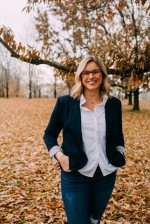
What is one piece of practical advice you would give to someone starting out?
No job is too small. Whether it is entering an invoice in the accounting system, or improving a process, put 110% towards that job. It’s about taking every opportunity you can to learn and grow, especially before you gain more responsibility in your personal and professional life.
What do you wish someone had told/ taught you on your first day on the job?
Don’t worry if you don’t know the answer. You learn more and build relationships with others when you ask questions. Also, asking questions is a great way to show that you are a problem solver and will do whatever it takes to ensure the job is done right.
What common characteristics or skills do you see in people who have a long and successful career in accounting?
Those who have a long and successful career in accounting best understand how to balance technical and soft skills. For example, good leadership is key when closing the books. To produce accurate financial statements, you need someone who is willing to mentor the members of the accounting staff but also understand GAAP backward and forwards.
What are your success habits?
There are two things that set me up for a successful day. One is making my bed. Making my bed in the morning helps me stay disciplined throughout the day. Two is responding to emails or other communication within 24 hours. This gets harder as you gain more responsibility, but even a simple message that acknowledges receipt is important to maintain good communication and relationships with others.
What tips do you have for preparing for the CPA exam?
I started my CPA journey in 2014 and ended it in 2019. Needless to say, I have tried everything when it comes to preparing for and passing the CPA exams. My best advice is to find someone to hold you accountable. This should be someone who understands accounting and can be there to answer hard questions. The content on the CPA exam is understood best when you can discuss it with somebody you trust.
Fun fact
My son, Karsyn James “KJ”, was born on August 1, 2020. I love being a new mom!
Jakson Deyer, CPA, audit manager, KPMG LLP, Louisville
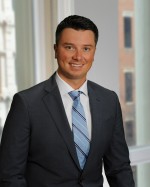
What kinds of experiences, paid employment or otherwise, would you most strongly recommend? What about internships or volunteer work?
I would strongly recommend as many internships as possible, whether paid or not. Internships give you insight into a career without the long-term commitment of a full-time job so you know whether that place and that job is something you could see yourself doing long-term.
What is one piece of practical advice you would give to someone starting out?
My advice is to always think about the future. Right now a lot of the focus is around how technology is impacting the world and our profession is no different, so I tell people still in school or new employees to get familiar with new technology tools and platforms to separate themselves from their peers and to be equipped for the future of accounting.
What common characteristics or skills do you see in people who have a long and successful career in accounting?
Peers and mentors of mine who have had successful careers in accounting are well-rounded individuals who not only possess technical knowledge but are also great communicators and just enjoyable to be around. It is important to take time to get to know your co-workers and connections on a personal level to build professional relationships that last.
What tips do you have for preparing for the CPA exam?
My first tip would be to try to finish the exam before you begin working full-time (something I was not able to accomplish). Beyond that, be prepared to make sacrifices to devote the amount of time needed to fully grasp the material so you can perform well on test day. Also, don’t be ashamed to fail. Chances are high that you will fail at least one part the first time you try, so just use that as a step in the process and attack the test even harder the next time.
What practices can you recommend for dealing with nervousness when speaking to groups?
Believe it or not, a lot of accounting jobs can involve times when you are required to present or lead a meeting. I have found that being prepared is the key to calming my nerves. Being prepared means you have taken the time to study and master the information you are presenting. Also, as with most things, repetition is key. The more times you practice and put yourself in situations where you are the center of attention, the more comfortable you will feel, and the nerves will fade away.
Fun fact
When I am not auditing, I stay active by running and golfing and I made a hole in one at Iroquois Golf Course once.
Taylor Deveaux, CPA, a supervisor in the Audit and Assurance Services Division, Riney Hancock CPAs PSC, Owensboro
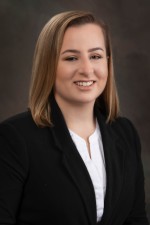
What do you wish someone had told/taught you on your first day on the job?
Learning the software is half the battle. I went out on an audit my very first day and was ready to quit by 5. I was totally overwhelmed. Once you learn how to work the software, you get to apply the theory and logic you learned in school. The fun of accounting starts then!
What kinds of experiences, paid employment or otherwise, would you most strongly recommend? What about internships or volunteer work?
I would try to do an internship both in private and public practice. I interned only in public. That left me with a lingering sense of “What if I enjoy private more?”. Four years into my accounting career, I left public and went to work in private. I did NOT enjoy private more and happily came back to my career in public accounting but I am thankful to have that question answered. As far as volunteer work – find an organization whose mission is something you are passionate about. Boards and organizations are always looking for an accountant to be treasurer.
What is one piece of practical advice you would give to someone starting out?
Take on all the different work you can. It gives you experience in different areas of accounting so you can see what you enjoy the most. Additionally, something you learn when helping on one assignment will probably help you in the future on other assignments. For example, helping in accounting services, specifically QuickBooks, gave me skills to help in our audits of Not for Profits who use this software.
What common characteristics or skills do you see in people who have a long and successful career in accounting?
They found something they are passionate about. Whether that is a specific niche of clients – medical/dental, for example – or a specific area of accounting – helping clients with retirement planning, for example – if you enjoy what you are doing, it makes it so much easier to come to work every day!
What were the most important things you learned from your mentors?
“Be where your feet are”. Finding a balance between your personal and professional life can be really hard. We are pulled in many different directions but as much as possible, focus on what you are doing when you are doing it. When you’re at work, focus on getting your job done so when you leave for the day, you can leave work at work and focus on your family.
What career mistake has given you the biggest lesson?
Put your head down and get your work done. In public accounting, some seasons are busier than others. If you’re in the middle of one of those busy seasons, complaining does nothing but waste your time.
What are your success habits?
Listen! Chances are you will be surrounded by people who have a lot more knowledge and experience than you. Listen to what they have to say and ask them questions. Take what you learn from them (management style, how they interact with clients, knowledge base, etc.) and apply it in your career.
What tips do you have for preparing for the CPA exam?
GET IT DONE. It’s so much easier to go straight from school to studying for the exam. It’s tough, especially trying to work 40+ hours a week and studying but so much easier to do when you aren’t used to having “free time”. Try to take a small break in between testing and studying for the next one. Helps to not burn out!
Bina Khatri, CPA, senior tax associate II, BKD CPAs and Advisors, Louisville
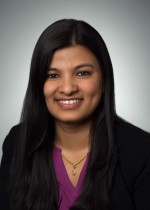
What kinds of experiences, paid employment or otherwise, would you most strongly recommend? What about internships or volunteer work?
Any work experience that helps develop soft skills before starting a career is very important. For instance, working in a team with classmates on class projects or being an active member of any professional group on campus like an accounting group or from internships or volunteer work. These experiences would help develop skills like time management, communication, multitasking and others which are very crucial for an actual job. It also helps to build self-confidence and motivation. In addition, these activities provide the opportunity to network and explore opportunities out there.
What is the best and least favorite aspect of your job?
I always loved math which encouraged me to get into the accounting field. The actual work is what I love most about my job. Another best part about my job is working with the people who are always there for me and my professional growth. The “People first” culture that my firm has created makes us feel like a part of a family that has helped us constantly grow and develop. The least favorite part is the amount of time that I have to work but fortunately its seasonal.
What do you wish someone had told/ taught you on your first day on the job?
I wish somebody had told me to not be afraid of asking questions. The more good questions you ask the more you learn and establish the foundation required to do your job. It is important to find the right balance where you would spend some time to solve the problem but do not spend too much time that you are spinning your wheels.
What tips do you have for preparing for the CPA exam?
Proper planning, time management and commitment are three things that you must have to pass the CPA exam. The CPA exam is a lengthy and systematic process where pre-approval is required to sit in the exam. So, preplanning and breaking down the total time period for each section of the exam is very helpful. I started my job before taking the exams, so I find time management as another important aspect of the process. I had reserved my evenings to study and scheduled my exam outside of the busy season. Lastly, a commitment to pass the exam is very important.
What common characteristics or skills do you see in people who have a long and successful career in accounting?
The most common characteristic that I see in people who have a long and successful career in accounting is the love and passion that they have for their work. Other common skills that I have seen are their management and leadership skills, willingness to learn and teach others, integrity and optimism. I believe these qualities are what make them achieve their goals and be successful.
Alma White, CPA, commercial credit analyst II, Republic Bank, Louisville
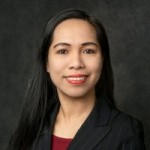
What is one piece of practical advice you would give to someone starting out?
Communication is key. Make sure to ask questions timely to your boss instead of spinning your wheels on something you don’t know about.
What were the most important things you learned from your mentors?
To join networking events is very important as it influences growth in your status and paves the way for better opportunities in your career, so make sure to join KyCPA and AICPA and attend any professional events related to your field.
What are your success habits?
Persistence, thoroughness, integrity, and adaptability
What tips do you have for preparing for the CPA exam?
Avoid distractions, stay focus, review everything that you studied, take a practice exam, and take care of your health.
